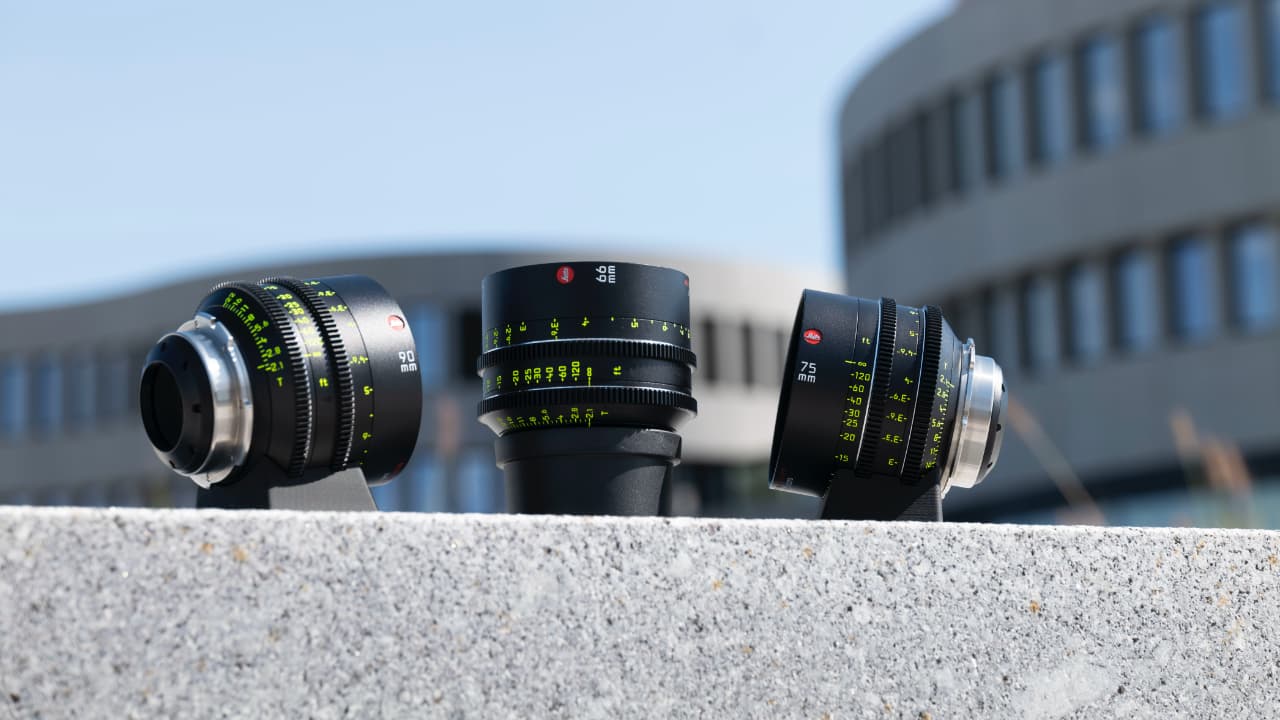
IBC2024 is the gift that keeps on giving and we’re still sifting through the various stories from the show. In this roundup: Brainstorm, Calrec, Colorfront, Dolby, Editshare, iFootage, iZotope, Leitz Cine, Nikon, and pixitmedia.
 Calrec had not one but three IBC product launches. Built on the same multi award-winning technology that powers its established Argo platform, the new Argo M brings the exact same feature set and operational familiarity as the larger Argo Q and Argo S consoles in a compact 24- or 36-fader footprint. Following its development preview at NAB, the ImPulse V cloud-based DSP processing core provides a virtualised Calrec audio mixing engine in a cloud native AWS environment. And Calrec’s True Control 2.0 builds on Calrec’s RP1 True Control implementation to provide expanded levels of control in two key areas: remote control without the limitations of mirroring or parallel controlling, with control of an expanded feature-set including EQ, dynamics, routing, direct outputs and delay; and it also now works with more products including Type R, ImPulseV, Argo M, Argo Q and Argo S.
Calrec had not one but three IBC product launches. Built on the same multi award-winning technology that powers its established Argo platform, the new Argo M brings the exact same feature set and operational familiarity as the larger Argo Q and Argo S consoles in a compact 24- or 36-fader footprint. Following its development preview at NAB, the ImPulse V cloud-based DSP processing core provides a virtualised Calrec audio mixing engine in a cloud native AWS environment. And Calrec’s True Control 2.0 builds on Calrec’s RP1 True Control implementation to provide expanded levels of control in two key areas: remote control without the limitations of mirroring or parallel controlling, with control of an expanded feature-set including EQ, dynamics, routing, direct outputs and delay; and it also now works with more products including Type R, ImPulseV, Argo M, Argo Q and Argo S.

Pixitmedia was highlighting the way that it helped Molinare tame production workflow complexity by deploying its flagship data acceleration platform, Ngenea on shows such as Sexy Beast (above). The company says that Ngenea's single namespace provides transparency and file access across storage tiers and remote locations, enhancing flexibility for global expansion. In addition to Ngenea, Molinare’s unified central storage solution includes Nvidia Mellanox backend networking for seamless data flow; Seagate NL-SAS storage for additional capacity; and lightning-fast NVMe storage for Molinare’s Flame stations and high-speed online work.
"Fast storage can provide the level of raw performance for video to play back, but we needed even more - including a storage solution that could deliver all levels of performance required to underpin our entire operation," says Molinare CTO, Darren Woolfson. "With Ngenea, our team now can routinely handle complex, high-resolution projects without bottlenecks or delays. We know we can meet even the tightest of deadlines, and continue to exceed client expectations.”
The iFootage Shark Slider Nano II looks interesting. It’s got a stronger motor than the original that lets it accommodate a larger payload, up to 7 kg ( a shade over 15 lb) and the company has made the every sensible decision to allow it to use DJI Ronin S gimbals. AI facial tracking is supported via an accompanying app and it comes in two lengths — 440mm (17 in) and 660 mm (26 in). It should be available to buy in November.

Colorfront was in its usual off-campus IBC location but nevertheless managed to demo some new tools covering SDR to Dolby Vision round-tripping, DCI to Dolby Vision conversion, HDR Cinema delivery & HDR Roll-off, Broadcast Converter Tools, HDR Brightness Guard, and Subtitle Detection. It also took advantage of its location with some cloud workflow presentations, ‘live-streaming’ SDR/HDR footage processed by Colorfront Transkoder in-the-cloud. The number-crunching took place some 900 miles away, in Stockholm, Sweden, the company using regular hotel broadband to view the results in realtime (though arguably, given the state of connectivity in the RAI, this actually ended up being an unfair advantage).

Talking of Dolby, following its acquisition of THEO Technologies, Dolby was majoring on cloud video products and solutions supporting real-time interactive streaming. The new offering brings together Dolby Millicast, an ultra-low latency streaming solution, transcoding solutions powered by Dolby Hybrik, and THEO’s portfolio of cross-platform playback and live streaming products. It all includes THEOplayer, one of the media industry’s most widely adopted video players, and THEOlive, which enables high-quality live streaming with very-low latency to massive audiences at scale. There was also a new THEOads product which is all about targeted ads (one of the main takeaways from the show being that we are all about to start seeing a lot more ads but they will also be less annoying - hopefully).

Nikon has added the NIKKOR Z 50mm f/1.4 to its lineup of Z series full-frame lenses. Designed to capture a natural perspective with what the company says is ‘extraordinary finesse’, this new 50mm prime lens features a fast f/1.4 aperture, sharp optics, swift autofocus, and impressive rendering performance. It’s the second f/1.4 full-frame lens to join the Nikon Z lineup and, like the NIKKOR Z 35mm f/1.4, is sealed sealed for worry-free durability and is easily light enough to keep on a Nikon Z camera while exploring.
Brainstorm mounted an impressive virtual production demonstration, combining its InfinitySet with XD Motion’s ARCAM 10 and ARCAM 20 robotic systems and IOBOT automation tool. The result was the ability to seamlessly blend a chroma screen with a large LED volume to create an interactive broadcast environment, featuring talent tele-transportation, augmented reality graphics, in-context data, and a large interactive touchscreen that the presenter could use to control the show.

Native Instruments’ iZotope unveiled Plasma, a new adaptive tube saturator plugin. It’s the first instalment in what it says is a new collection of upcoming plugins, the Catalyst Series, and features groundbreaking “Flux Saturation” technology that applies tube saturation precisely where and when it’s needed to enhance music. The company says that unlike traditional saturators that apply a static effect, Plasma’s dynamic processing offers a lighter touch for consistently balanced mixes and masters. Pricing starts at $39.
Editshare launched the Ultimate EFS Series storage platform. Whether a facility needs 32TB or more than half a petabyte in a single node, this is a scalable solution that can expand beyond 15 petabytes within a single namespace. The Ultimate Series will be available in 2U, 3U, and 4U form factors, alongside a portable field unit for enhanced remote flexibility.

And Leitz Cine announced three new lenses in the Leitz HUGO series: 66 mm T2.1, 75 mm T2.1, and 90 mm T2.1. Joining the 10 existing Leitz HUGO focal lengths, the HUGO II lenses, so named for their slower aperture, introduce new options that offer some size advantages and slightly different looks with the 75 mm and 90 mm, while the 66 mm fills the gap between 50 mm and 75 mm.
There’s some good backstory here too. The Leitz HUGO 66 mm T2.1 lens is based on the fabled “spy lens” created by legendary Leica lens designer Walter Mandler for the US Navy during the Cold War. Built for ultra high resolution imaging and never intended for the public, it’s estimated that less than 200 were ever produced. By only slightly modifying the simplicity of Mandler’s original design, this lens sits alongside its modern siblings as a great pairing with an impressive pedigree. While considered extremely sharp for its time, the images match remarkably well with the strong character of the modern day HUGO lenses now.
Tags: Production IBC2024


Comments